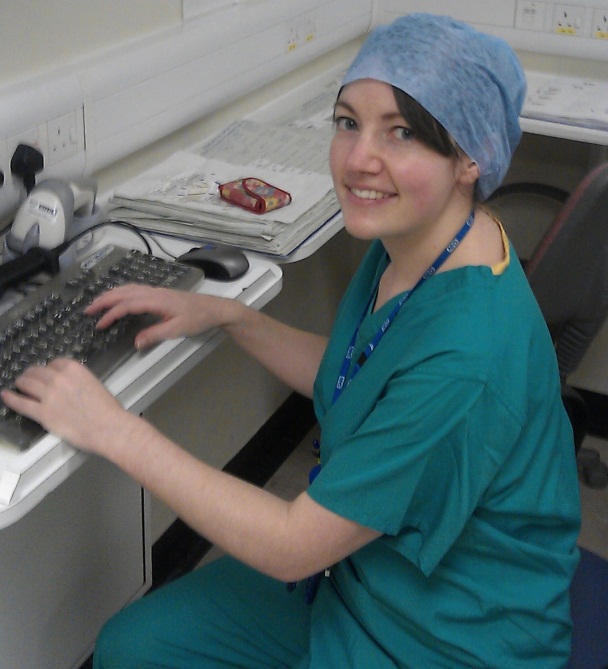
Katherine qualified from the University of Newcastle upon Tyne in 2010 with BDS and gained her MFDS from The Royal College of Physicians and Surgeons of Glasgow in May 2012.
Introduction
After qualifying with BDS in 2010 I started my foundation training year working in a family owned dental practice in Gateshead, Tyne and Wear. My trainers, Nuala and David, were fantastic, as were all the other staff. They were supportive, nurturing, knowledgeable and knew how to push you to do a little more or a little better every day without making you feel that you weren't really good enough. In short, the perfect introduction to general practice for a newly qualified dentist.
But I wasn't sure if general practice was my "forever" job. There was so much more to experience out there. I wouldn't have been happy with myself settling down immediately into the life of general dental practice and units of dental activity without giving something else a go to see if I liked it better. I liked a challenge, even if I didn't actually realise this until after the fact. So, with the encouragement of my trainers and my FD Advisor, Duncan, I applied for a DF2 post which included working as a community dental officer within the salaried services and as a senior house officer in an oral and maxillofacial surgery unit. I was successful and so I looked forward to a time of new patients, challenges and problem solving.
Community Post
The preventative advice I gave improved dramatically and it was wonderful to see parents and childrens' attitudes change with regards to the importance of dental care. I had the opportunity to provide care for adults under the remit of the special care service, and "special care" is a broad term indeed. No patient was really ever the same, even if they had the identical condition, be it medical, physical or emotional. Their management strategies were extremely diverse and getting to know what was going to work for them in terms of providing treatment was often a struggle. A holistic approach was used, looking at adult patients as a whole being rather than just a mouth. It was the first time where I had to make treatment decisions in a patient's best interest, for those who lacked capacity to consent for themselves.
The involvement of the IMCA (Independent Mental Capacity Advocate) was absolutely invaluable. Again, the clinicians and nursing staff I worked with were amazing and shared all their patient knowledge and experiences with me to make my placement as wholesome as possible. Special thanks go to Martin, Sarah and Gerry for all of their help and encouragement. The patients I saw were challenging but I often left work with a great sense of achievement that I had made a difference to someone's health and wellbeing. I started to feel a sense of where my career might take me.
All too rapidly I finished my community post and began working in the world of maxillofacial surgery. It was a shock to the system; new words, faces, computers, hospital corridors and unsocial hours, not to mention the plethora of ill patients that were suddenly under my care. I had decided before I started this position that it would be beneficial to gain experience in different locations with different distributions of care, so I started this new and alien job knowing that I was going to complete 18 months in total of maxillofacial.
Maxillofacial
At Sunderland Royal Hospital I had my first experiences in caring for those with head and neck cancer. I learnt how to manage trauma patients, organise theatre slots and effectively manage time when I was on-call. At night when I was on shift, I was also the first port of call for any ear, nose and throat emergencies that presented at A&E. My confidence in managing medically unwell patients grew over the first few months and I became more comfortable working alone. I was encouraged to complete an audit and submit it to an international conference. I moved units after six months to the Royal Victoria Infirmary in Newcastle upon Tyne. At this time I knew that pursuing a career in maxillofacial surgery wasn't for me as I missed clinical dentistry and I was a bit selfish in that I loved my evenings and weekends too much to work many years on-call, but I used my time to improve my skills in oral surgery. I knew that I enjoyed dentistry with some added challenges. I became set on a career in special care dentistry.
Special Care Dentistry
Heading into the direction of this speciality took two and a half years for me to realise and become sure. At one point I wasn't certain what I wanted to do, I seemed to like everything I turned my hand to. Now I have a focus, I have started to tailor my foundation experience towards pursuing this speciality. I started another foundation post in special care and paediatric dentistry within the Yorkshire and Humber Deanery and, due to my previous experience in the salaried services and maxillofacial surgery, have been able to mould my clinical timetable to achieve goals and enhance my skills further. I will hopefully be in a strong position when I apply for a speciality training post in the field of special care dentistry.
I would urge foundation dentists who may be confused by all the career options available, to make the most of the early years of their training and apply for positions which offer varied clinical experiences. Even if you decide after this that general practice is for you, these experiences will give you broader understanding of the structure of NHS dentistry and help you become a well-rounded clinician with enhanced skills in some areas.
Katherine McDermott
Dental Protection is the leading indemnity provider.
Find out more